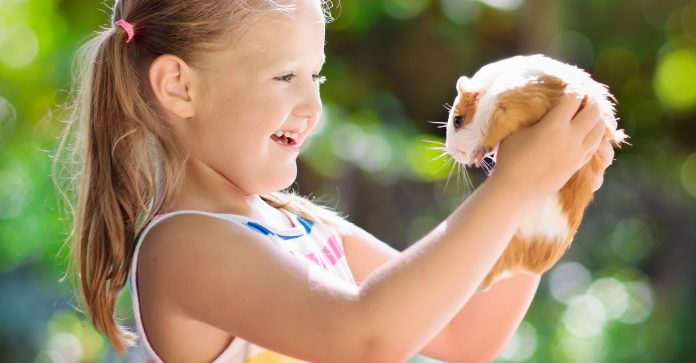Pigs as Beloved Pets
The popularity of pigs as pets does not seem to be waning. Though they are hypoallergenic, clean, intelligent, loving, and stinking cute, they are different from a cat or dog and present their own challenges.
Pigs as Beloved Pets
The popularity of pigs as pets does not seem to be waning. Though they are hypoallergenic, clean, intelligent, loving, and stinking cute, they are different from a cat or dog and present their own challenges.
Things to Know Before You Adopt a Pig
Pigs become very attached to their humans. Pigs have been known to become quite depressed when removed from their homes.
Should you buy a pig and then decide it isn’t working out, there are pig rescue organizations. They are, however, quite full.
While cats and pigs are known to become fast friends, dogs are natural predators of pigs and are probably not a good fit.
Spay or neuter your pig as soon as possible. Male pigs that are not neutered will develop a musky scent that sticks to clothes and furniture. Females can develop uterine problems if they are not spayed.
Pigs can be taken on vacation. You will need to practice riding in the car with them until they are comfortable. However, if you leave your state, you will need a health certificate, and finding a hotel could be challenging.
Most kennels do not take pigs. They are simply not set up to provide them with the care they need. Hiring a pig sitter is probably a better choice.
Consider adopting a pig from a rescue organization or pig sanctuary. Many people have the best of intentions but abandon their animals, so there are plenty of pigs to choose from. If they are full-grown, you will see their size, get a good idea of their temperament and if they have any health issues.
How Big Can a Pig Get?
Many people are not prepared for the fact that the cute little piglet they were told would stay small can grow to 100 pounds. Pigs can produce offspring at the age of three months.
At this age, they are still small, and unscrupulous breeders will be more than happy to show you the parents of the piglet you want to buy without telling you how big they truly become. Breeders will also keep pigs small by simply not feeding them very much. They are small because they are malnourished. Pigs were bred as livestock, not pets, so unless you want a 100-pound farmyard animal as a pet, do them a favor and don’t get one.
Do Pigs Make Good Companions?
Though pigs were originally bred as livestock and not family pets, they can still be good companions. Pigs are pack animals and crave body heat and the closeness of a pack. They are affectionate and love to have their tummies rubbed and snuggle. They squeal with delight, bark when they sense danger, and make a coughing sound when they are mad. Many owners dress up their pigs, take them for long walks, travel with them and even sleep with them.
Pigs are highly social animals. Some need the companionship of other pigs, so you may be looking at buying two pigs, not one. Most cannot be left home alone during the day as they will become destructive. They are also territorial and will claim your house as their own. Giving them plenty of time outside should help with this. On the farm, pigs establish a pecking order and will do so in your home as well without strict discipline. Pigs that are allowed to rule the roost can become aggressive toward people, so you will need to make sure you are the pack leader.
What Are the Care and Feeding Requirements for a Pig?
Pigs are generally quite healthy animals. One visit to the vet per year is all they need to get vaccinations and hoof trimming. Pigs have bristly hair that is hypoallergenic and does not shed, making them a good alternative to dogs and cats for people who suffer from pet allergies. Despite the prevailing stereotype, they are clean and odorless and can live up to 20 years.
It is true, however, that pigs love to eat. There are feeds that are designed for potbelly pigs and should always be the mainstay of their diet. Pigs should never be fed dog or cat food as the protein level is too high. Pigs can be given treats, but they should be limited to fruits and vegetables. Pigs can become overweight and can develop leg problems.
Because pigs can’t sweat, they will need a mud hole or kiddie pool to cool off during hot weather. They will also need sun protection, whether it is mud or sunscreen
Before purchasing your pig, make sure you can find locally available care from a qualified veterinarian. In many suburban and urban areas, this can be quite a challenge. Many municipalities ban the keeping of livestock as pets, so there is very little need for vet care in these areas.
Can Pigs Be Trained?
Pigs are quite smart. Studies put their intelligence at about the level of a typical three-year-old child, and they require mental stimulation to be a content friend. They can easily learn to open the refrigerator and cupboards looking for food. The upside is their intelligence makes them easy to train. They can easily be housebroken and love to learn to do new tricks, especially when food is used as positive reinforcement.
Because they are highly intelligent and social, they become bored and lonely easily and should not be left home alone for long periods of time. They will explore household objects without regard for their potential for destruction. They have been known to rip up carpets, eat drywall, turn over plants to sniff through the dirt, tip wastebasket, and cause a wide variety of mayhem, too numerous to mention.
What’s Their Temperament?
Rooting is a pig’s natural way to familiarize themselves with an environment and find food. When outside, pigs will tear up any yard in search of food from the ground. They are known to eat anything from acorns to worms. Their natural need to root cannot be broken and will lead to a torn-up yard. Additionally, pigs are built for a cool, low-stress environment. When under stress, they can develop pneumonia, which can quickly kill a pig. If your house always seems to be hoppin’, a pig may not be right for you.
Still Undecided? Consider a Mini-Pig
If a 100-pound pig isn’t your idea of miniature, BGI, a genomics institute located in Shenzhen, China, will start selling genetically engineered miniature pigs for $1600.
Using a BAMA, an already small breed of pig, they disable a copy of the growth hormone receptor gene to make it even smaller. They then clone the pigs from the fetus, which produces a stunted male BAMA pig. The male is then bred with a normal female, which results in half of the offspring being micropigs.
Normal BAMAs can weigh up to 100 pounds. The genetically altered pigs grow up to 30 pounds when mature.
BGI has not observed any health problems associated with the cloned pigs and, in the future, promises to offer miniature pigs in a variety of coat colors and patterns.



























